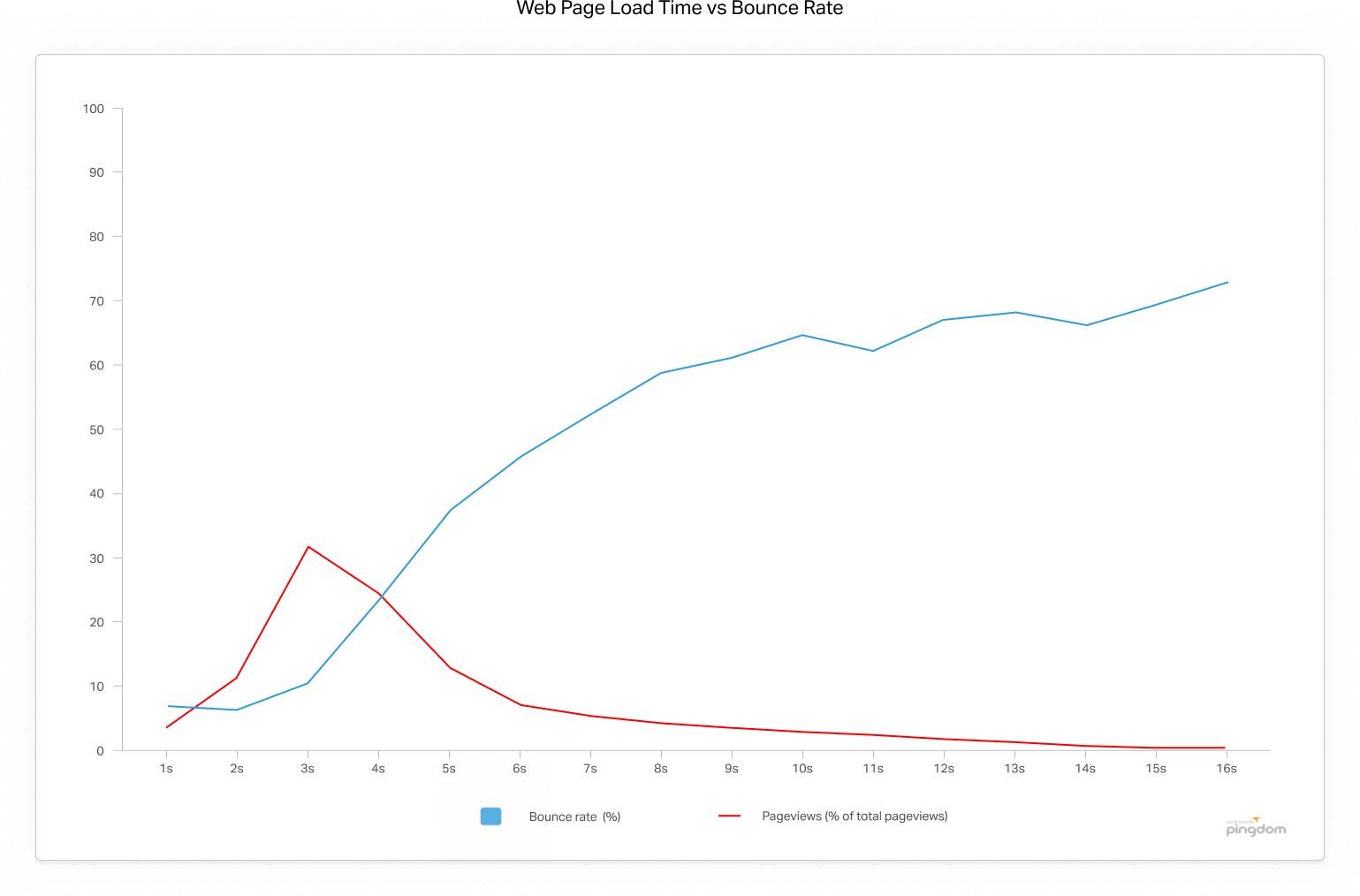Web hosting is responsible for so much more than just storing and publishing your website files. It’s also important for establishing a reputable online presence for your business.
Wondering how?
With excellent hosting services, your website can provide great user experiences, which will boost your brand’s image in your users’ eyes. However, a poor web hosting solution can ruin your visitors’ experiences, which could cause you to lose them in the long-run.
Today, there are many web hosting providers in the market who offer a good price and quality ratio. But with so many options to choose from, you might not know where to begin your search.
So, how can you find the right hosting solution for your business?
I hope my article will help you understand what you really need from your web hosting company. This will help you make more informed decisions.
Table of Contents
7 Factors to Consider When Choosing a Web Hosting Solution
To help you make the right choice, I’ve curated this list of the key aspects you should consider before picking a web hosting service provider.
1. Uptime
Uptime refers to how often your website will be online and available to the public. It’s a crucial aspect to look for as ideally, you want your website to be up 24/7.
If your website is down when your visitors are up, it could significantly decrease your site’s conversion rates and make you lose potential customers.
Don’t you believe me?
Here’s the proof:
Amazon lost about $1.2 million a minute due to technical glitches during its Prime Day event.
Frequent downtimes can also reflect badly on your brand. No customer likes to go to a website just to find out it’s unavailable to help them. Your site should be able to cater to your visitors’ needs at all times from any place.
How can you prevent such issues?
To avoid such cases, you should look for a web hosting company that guarantees at least 99% uptime. Don’t go lower — even a 90% guarantee can create significant losses, especially during your website’s most active hours.
Additionally, you should find out if the provider has a policy in case they cannot maintain this claim. Some companies like the high-quality website hosting provider, Hostinger, offer to pay you a 5% credit of your monthly fees to make up for such failures.
2. Loading Speed
How long does it take for your website to load?
Your website’s loading speed has a direct impact on your business’ success. The fact is that a slow website can cause visitors to bounce, which can mean more loss of income.
What’s more?
Google uses page speed as a search ranking factor. In other words, if you want to improve your SERP rankings and gain more organic traffic, your site needs to load fast.
One way to ensure a high site speed is by picking the right web hosting provider.
Here are a few tips on how to pick the right one:
- Assess how much traffic you anticipate and what kind of files you’ll be displaying on your site.
- See how much bandwidth the plan provides. This determines how much traffic your site can take on. A high number means more people can visit your website at the same time without impacting its performance.
- When a hosting provider offers unlimited bandwidth, always double-check the facts. Usually, this means your website can take up as much bandwidth as it can — so long as it doesn’t exceed the hosting provider’s allocated amount.
- Check the disk space and processing power. If you plan to have various media files and collect lots of user data, a 10GB storage with a low RAM might not suffice.
- Look for built-in caching. This feature will let your users’ browsers download your web page after they first visit your site. This way, the browsers can simply display the elements of the same page every time your users return, which can cut down the loading time.
3. Scalability
If you plan to grow your website, make sure the web hosting company allows requesting upgrades to a higher plan. This is a convenient solution for times when you end up using all your hosting resources and need to scale them up.
Though it’s possible to migrate from one provider to another, it’s more convenient to stick with the same one from the start. Furthermore, the migration process can take some time.
Are there any alternatives for easy scalability?
Some providers offer VPS hosting and cloud hosting plans where you can choose and pay for extra resources.
This can be useful and cost-effective if you’re anticipating a traffic surge in certain periods — such as Black Friday sales. There have been instances where many retail sites such as Costco crashed due to high visitor volume.
4. Security
As cybercrime becomes a growing danger to online businesses, keeping your website safe should be a priority.
Have you implemented effective website security measures?
Even if you have, this won’t matter if your web hosting solution isn’t well-protected. In the end, your website will still be vulnerable to external threats.
With that in mind, here are some things to look for in your potential web hosting provider:
- SSL certificate: This refers to Secure Sockets Layer and helps encrypt any data transmitted between your web server and the visitors’ browser. This feature is important if you want to avoid sensitive information of your users from getting hacked.
- Antivirus scanner: This will detect and remove any malicious software that can damage your website.
- Firewall: This is a security system that filters and prevents cyber attacks.
- DDoS mitigation: This refers to Distributed Denial-of-Service and it helps prevent hackers from exhausting your server resources and taking down your website.
Does your web hosting solution provide all of these?
5. Backups
It is also important to make sure that the hosting company offers a backup service if your website files get lost due to security issues or by accident.
Why is it important?
With this, you will not have to build your site from scratch. You can get it backed up in a short while.
You should look for hosting providers that perform regular, automated backups with one-click restoration. This way, you will not have to worry about backing up your website yourself. Some companies provide a daily or weekly backup service, depending on the plan you choose.
6. Error Monitoring
If you’re new to web hosting, you’ll probably need some guidance in managing it. To prevent glitches from damaging your users’ experiences, it helps if the provider you choose has a monitoring and notification system in place.
For instance, some companies will let you know when they find issues related to performance, security, or the application you’re using. Or, if you’re a shared hosting user, they can notify you when your server usage has reached its limit.
Regardless of the nature of issues, make sure the provider has a system in place to locate potential problems and report them to you. As a result, you will be able to resolve any issue before it gets bigger.
7. Customer Support
Reliable and responsive customer support will be of massive help when you encounter problems you can’t fix yourself.
Does the web hosting company provide 24/7 support?
This is another important question you should ask while choosing your provider.
The hosting provider should have a live customer service channel such as a chat, email, or phone call service. The company representatives should be able to get back to you quickly so that you can fix the issue in no time.
Other than that, the hosting provider should provide comprehensive documentation you can access easily from their website. You can use it as a manual from time to time.
Ready to Choose Your Web Hosting Solution?
Since web hosting is an important part of making your website a success, you shouldn’t just pick any random provider available. Knowing what to look for in a hosting company can get you closer to the right choice but it doesn't mean that these aspects should cost you a lot.
One great example of a high-quality web hosting services and price ratio is Hostinger. It offers different web hosting plans to fit the needs of businesses of all sizes.
Though web hosting solution research can be time-consuming, the list above should help you make a quicker decision. Soon enough, you’ll figure out the right hosting provider and plan for your business.
Did you find this post helpful? Or, do you have any more questions for me? Please feel free to share your thoughts in the comments section below.




Related Articles
What is Digital Marketing? Everything You Need to Know
Best Blogger Outreach Tool – 21 Tools to Minimize Your Outreach Efforts
33 Free Google Marketing Tools for Marketers and Developers
22 Best Online PR Tools to Build and Monitor Media Relations
Digital Marketing for Startups: The Strategies to Use in 2024